Nicaragua
Featured Resource
Local political leadership or a fool-proof system?
Agenda for Change members working on systems approaches
Please note this is a summary of information. You can learn more on the Water for People and WaterAid websites.
WaterAid works in Nicaragua to strengthen service delivery, strategic planning, financing, monitoring, coordination, accountability mechanisms and post-implementation support functions of permanent institutions.
Water for People implements the Everyone Forever model (encompassing all 8 system-strengthening building blocks) in the districts of San Rafael del Norte and La Concordia in the Jinotega department and is partnering with Agua Para La Vida and World Vision to implement the model in the San Sebastian de Yali district also in the Jinotega department. Additionally, Water For People works with 2 microfinance institutions (MFIs), Micredito and FUNDENUSE, and the national network of MFIs to support access to sustainable sanitation services.
Systems strengthening activities
In Nicaragua, WaterAid draws on an understanding of social and cultural practices and their knowledge of governance systems in the autonomous indigenous territories. The community is placed at the forefront of interventions to encourage ownership and demand for services. This participatory approach involves engagement with local government and the private sector to deliver water, sanitation, and hygiene (WASH) services in the communities, as well as competent oversight, support, and regulation of the service providers. WaterAid’s work in the municipalities is complemented by work to support sector development at the regional and national levels. Both WaterAid and Water For People are active members of the Nicaraguan WASH Network (RASNIC) which is a multi-stakeholder forum composed of government institutions, aid agencies, international non-governmental organizations, civil society organizations, and universities active in WASH.
In Nicaragua, Water For People pioneered the microfinance for sanitation improvement approach. This initiative is built on partnerships with local microfinance institutions that offer small loans to families to invest in safe sanitation for their families. They also construct piped water systems and work with district governments to ensure the sustainability of those systems. They also conduct training on topics like tariff collection, water quality and treatment, protection of watersheds, and system maintenance and monitoring. To promote better water quality, Water For People helped establish two water treatment plants that require limited resources to operate — helping ensure the sustainability of water quality. They are also improving water, sanitation, and hygiene programs in schools and training parent-teacher associations to maintain the new infrastructure. Borrowing from their Guatemala programming, they also helped implement ‘Hygiene Corners’ in classrooms, which allow teachers to integrate hygiene-focused activities into their daily lessons.
WaterAid and Water For People staff participated in an Agenda for Change learning event in April 2019, in conjunction with the 5th Latin American Conference on Sanitation (LATINOSAN). The discussions focused on national scale strategies and the development of municipal, regional, and national strategic plans, sharing of planning, monitoring and costing tools, identification of opportunities for collaboration among Agenda for Change members, and facilitation of knowledge exchange among partners.
Other partners
Entities of the Central Government
National water authorities
Local Governments
Regional and municipal authorities, authorities in autonomous regions
All others
Agua Para la Vida, ONGAWA, Visión Mundial, BORDA, La Red de Agua y Saneamiento de Nicaragua (RASNIC), World Vision, Micredito, FUNDENUSE
Accomplishments
- Establishment of the Inter-Institutional and Sectoral Commission on Water and Sanitation, led by Water For People.
- Water For People has supported the municipality of San Rafael del Norte to reach all 46 communities with reliable water services. Together with the municipality of San Rafael, Water For People also reached everyone in the municipality’s 57 public institutions with reliable water and sanitation.
- To scale sanitation services, Water For People launched an online training platform for credit advisors with the intention of increasing the number of sanitation loans.
Challenges
- This November, the powerful Hurricanes Eta and Iota caused catastrophic damage to the Caribbean coast of Nicaragua. During powerful storm surges, water and sanitation services were among the first to fail.
- A complicated legal framework results in the fragmentation of roles and responsibilities among multiple institutions.
- In the indigenous territories, there is generally a low capacity of both local government and local organizations to plan for, construct, operate and maintain water and sanitation services.
- The deficit in spending on water supply and sanitation; limited resources at the municipal level and funding which is provided by the central government isn’t sufficient.
How strong are the systems?
To determine how well systems are working, we rely on data derived from Building Blocks, which are manageable ‘sub-systems’ that can be supported and strengthened. Certain building blocks may be more strongly developed or applied at district or national level. Interactions between building blocks are essential.
National level
Building Block
Water
Sanitation
Hygiene
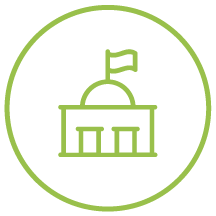
Institutional Arrangements & Coordination
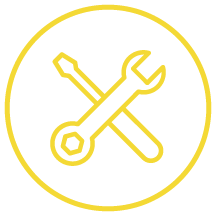
Service Delivery Infrastructure
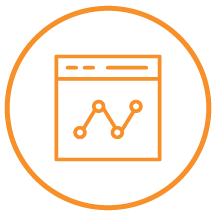
Monitoring

Planning
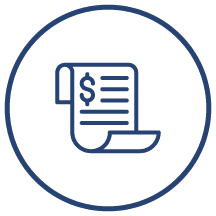
Finance
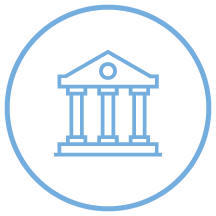
Regulation & Accountability
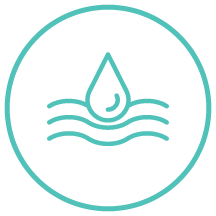
Water Resource Management
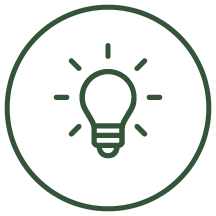
Learning & Adaptation
Resources
Systems Library
Please note this is a summary of available resources. You can learn more on the WaterAid Nicaragua webpage, the Water for People Nicaragua webpage, and the press and publications pages.
National
Local
National







